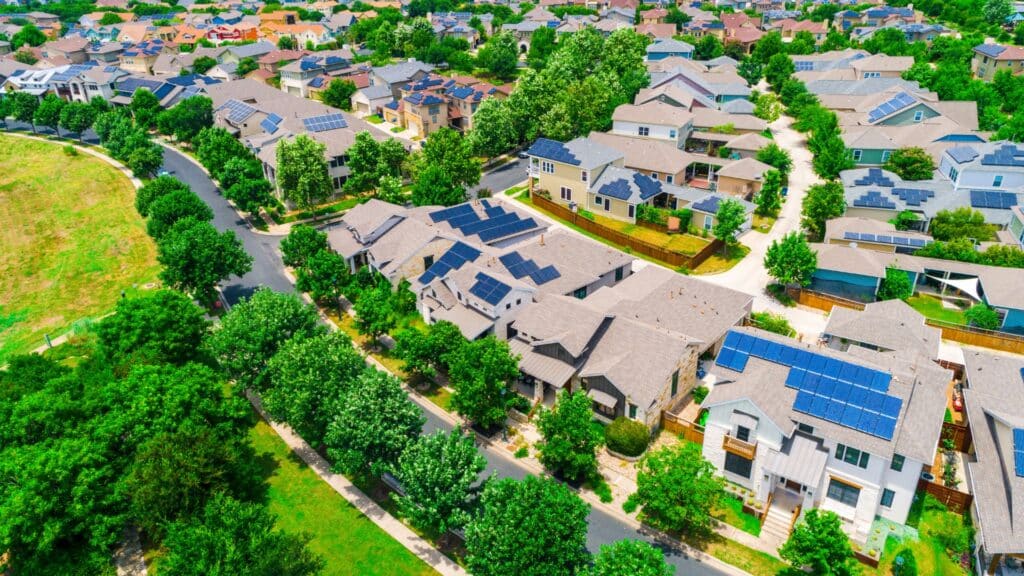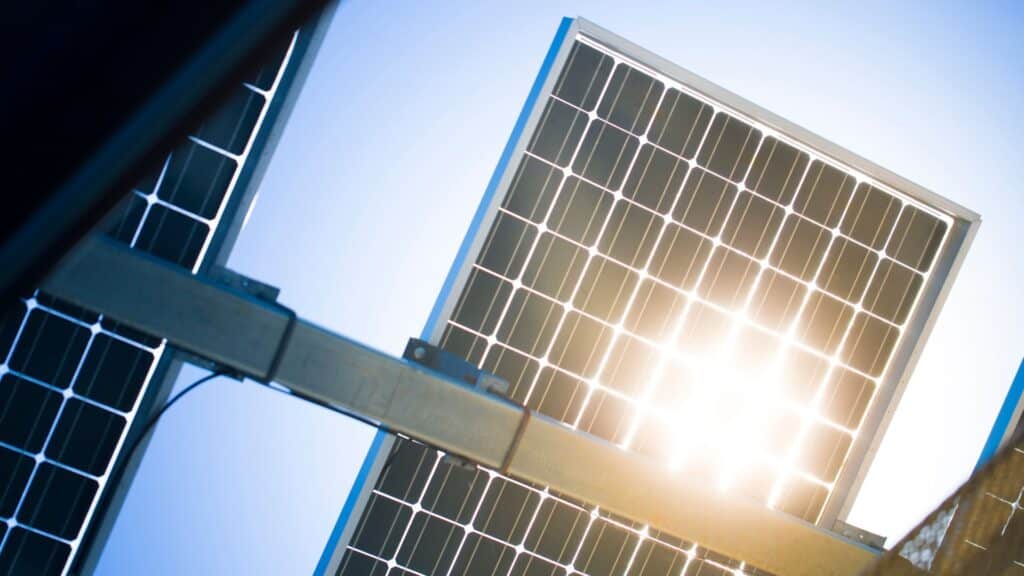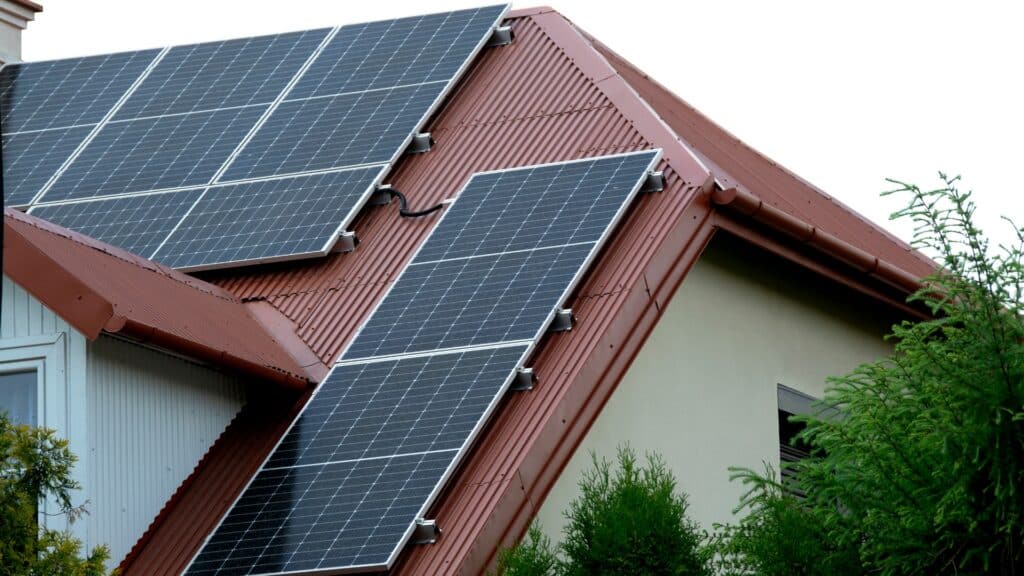Discover the Power of Solar Energy with Schoenherr Solar: A Guide to Your Home’s Solar Potential
Looking for an eco-friendly energy solution for your home? Consider solar power with Schoenherr Solar. Solar energy offers a clean, renewable, and cost-saving way to power your home. However, figuring out how many solar panels you need can be tricky. We’ll guide you through understanding solar energy basics, the benefits of solar power, calculating your home’s energy needs, and determining the right number of solar panels for your setup. Let’s explore how you can harness solar power efficiently with Schoenherr Solar.
Understanding Solar Energy and Its Benefits
Solar energy, harnessed by Schoenherr Solar, is a renewable power source derived from the sun. Utilizing photovoltaic cells, also known as solar panels, this technology converts sunlight into direct current (DC) electricity. A key benefit of solar energy is its sustainability, leveraging sunlight—a free and abundant resource. Even under cloudy or overcast conditions, solar energy systems from Schoenherr Solar maintain efficient operation, ensuring a dependable power supply. Opting for solar power through Schoenherr Solar not only aids in reducing your environmental impact but also provides economic advantages through energy cost savings and the possibility of receiving tax credits.
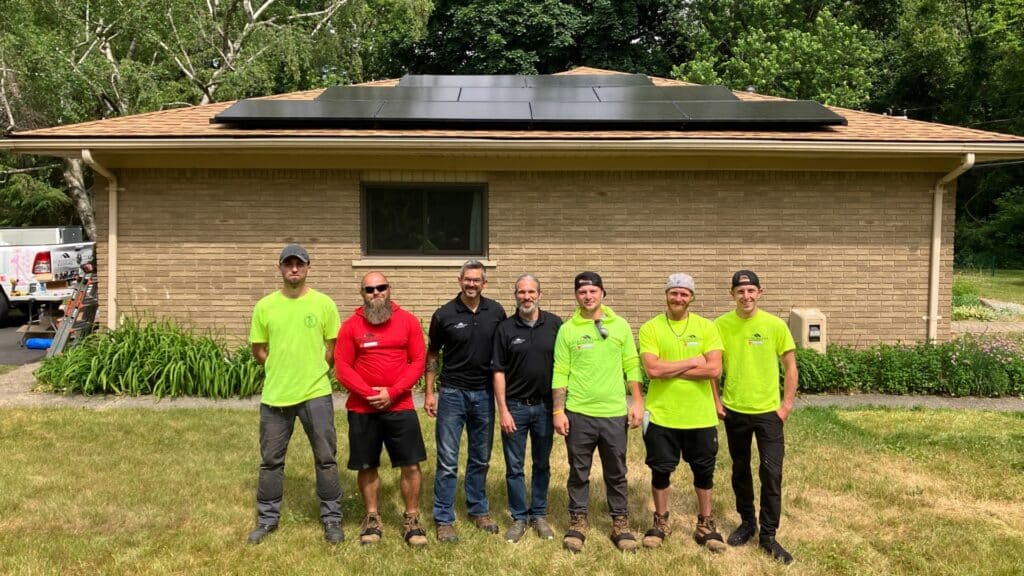
The Basics of Solar Energy
Solar energy systems are typically comprised of solar panels, an inverter, a racking system to mount the panels, and wiring to connect everything. The size of a solar system is determined by the amount of energy it can produce, which is measured in watts (W). A typical solar panel has a power rating of around 250-400 watts, depending on its efficiency.
Solar panels can be installed on various surfaces, including rooftops, carports, or ground mounts. The amount of energy a solar system can generate depends on factors such as the size of the system, the quality of the panels, and the amount of direct sunlight it receives. By installing a solar system, you can generate clean electricity, reduce your reliance on the grid, and potentially save money on your energy bills.
Advantages of Using Solar Energy for Your Home
Switching to solar energy with Schoenherr for your home offers numerous advantages, both financial and environmental. Here are some key benefits to consider:
- Renewable Energy: Solar power is derived from sunlight, which is a renewable and abundant resource. By harnessing solar energy, you can power your home in an environmentally friendly way, reducing your carbon footprint.
- Energy Efficiency: Solar panels have improved efficiency over the years, allowing for better energy production from even a smaller surface area. This means that you can generate more electricity with fewer panels, maximizing the use of available space.
- Tax Credits: Installing solar panels may make you eligible for federal tax credits, reducing the cost of your solar system installation. Check with your local tax authority to see if you qualify for any incentives or credits.
- Net Metering: Many states offer net metering programs, which allow homeowners to sell excess solar energy back to the grid. This means that when your solar system produces more electricity than you need, the excess energy is fed back into the power grid, and you receive credits for it. These credits can be used to offset energy consumption during times when your solar system is not generating enough electricity, such as at night.
- Reduced Reliance on the Grid: Solar power helps reduce your reliance on the local utility company. By generating your electricity, you can become more energy-independent and potentially save money on your monthly utility bills.
- By harnessing solar energy and taking advantage of these benefits, you can make a positive impact on both the environment and your finances. Before making the switch, it’s important to consider your current electricity usage and estimate the number of solar panels you will need. Let’s explore how to calculate that.
Calculating Your Home’s Energy Usage
Understanding the energy consumption of your home is crucial for determining the number of solar panels required. Start by evaluating your current electricity bill to identify patterns and peak usage times. Additionally, assess high-energy consuming appliances, such as air conditioners and water heaters, to gauge their impact. It’s imperative to accurately calculate your energy use to avoid over or underestimating the solar system needed for your home. By understanding your energy consumption, you can confidently approach solar companies or local installers, armed with the knowledge to make informed decisions about financing options and the quality equipment required for your solar installation.
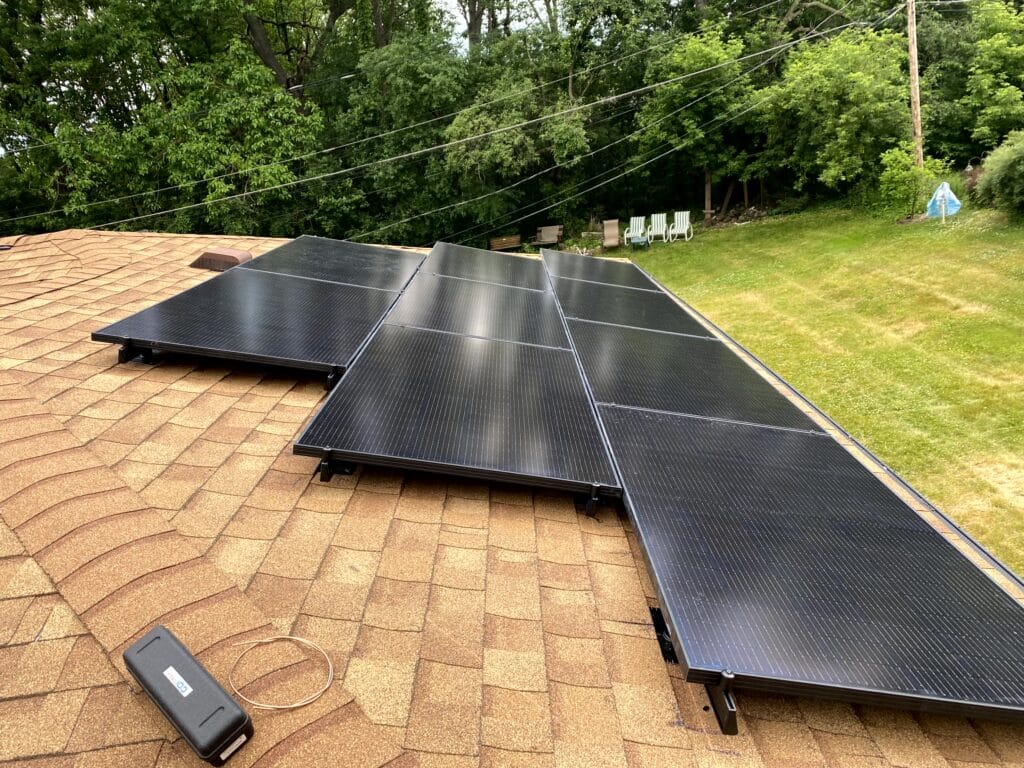
Evaluating Your Current Electricity Bill
When evaluating your current electricity bill, it’s essential to analyze the insights into monthly energy consumption it provides. Understanding electricity rates and billing structures is crucial for supporting solar energy planning. Tracking seasonal energy fluctuations informs the size requirements of a solar panel system while factoring in utility bill history helps estimate cost savings from solar energy. Assessing electricity use patterns is key to identifying the benefits of solar energy. This evaluation empowers homeowners to make informed decisions about transitioning to a sustainable and cost-effective solar system. Schoenherr Solar will walk you through every step of the process.
Identifying High Energy Consumption Appliances
Identifying which appliances consume the most energy is crucial when optimizing your home’s energy usage. Heating, ventilation, and air conditioning (HVAC) systems are known to be major energy consumers, while household appliances like refrigerators and washers also significantly impact energy usage. Recognizing these energy-hungry devices allows for effective energy efficiency strategies. Upgrading to energy-efficient appliances can substantially reduce overall electricity consumption, ultimately optimizing the performance of your solar energy system. By embracing smart energy management and investing in quality equipment, you can make the most of your solar system and decrease your reliance on the local utility company.
Estimating the Number of Solar Panels You Need
Determining the number of solar panels needed involves various factors, including average energy consumption and available roof space. Efficiency is crucial in panel selection, aligning with energy goals to ensure a cost-effective solution. Schoenherr aids in accurately estimating the quantity required for a solar system that suits your specific needs. Estimation also considers the size of the solar panel installation and promotes effective energy solutions. This process enables you to make an informed decision tailored to your energy requirements, ultimately empowering you to embrace renewable energy options.
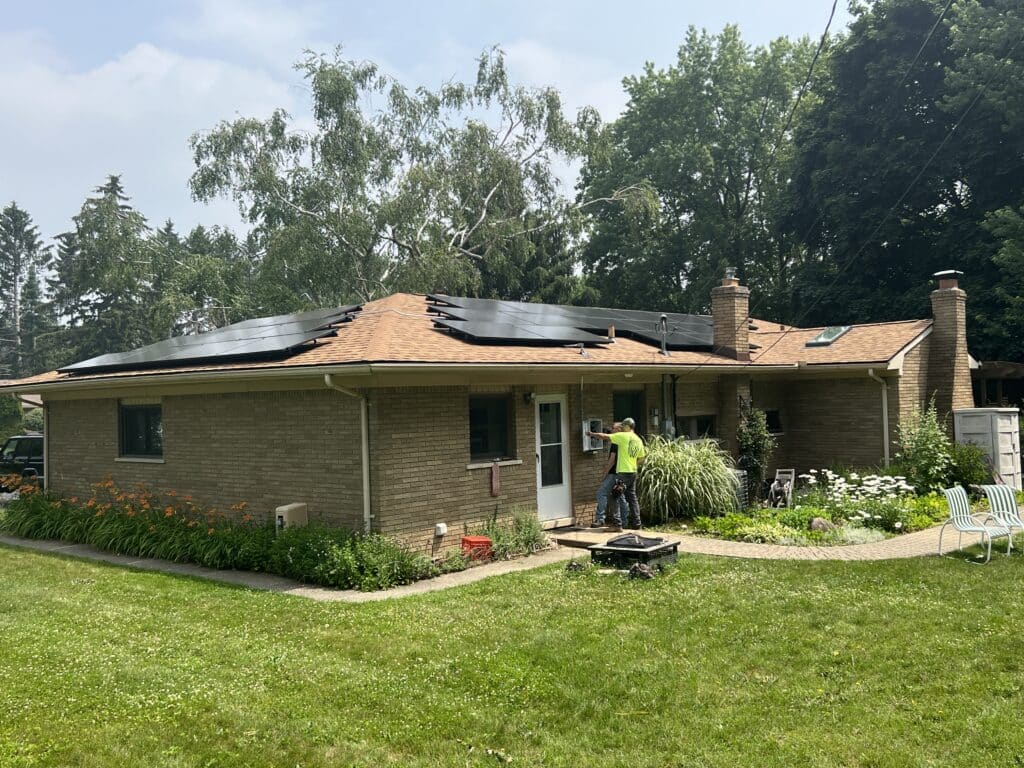
Maintenance and Lifespan of Solar Panels
Regular maintenance and cleaning play a crucial role in prolonging the lifespan of solar panels. Typically, solar panels have a lifespan of 25-30 years, but their efficiency can be affected by factors like weather conditions and shading. It’s essential to collaborate with reputable solar companies and opt for high-quality solar equipment. Additionally, consistent monitoring and maintenance help ensure the optimal performance of your solar system. By staying proactive and working with licensed electricians, you can make the most of your solar installation and contribute to renewable energy efforts, ultimately benefiting both your finances and the environment.
Switch to Solar with Schoenherr Solar: Power Your Home Sustainably
Ready to harness the power of the sun and transform your home’s energy solution? Calculate the right number of solar panels for your needs with Schoenherr Solar. Whether you’re looking to reduce your electricity bills, contribute to environmental sustainability, or achieve energy independence, our solar solutions are tailored to meet your specific requirements. Remember, solar panels offer a lifespan of 25-30 years with regular maintenance, making them a valuable long-term investment. Don’t wait any longer to explore the benefits of solar energy. Contact the experts at Schoenherr Solar today for personalized guidance and take the first step towards a brighter, greener future.
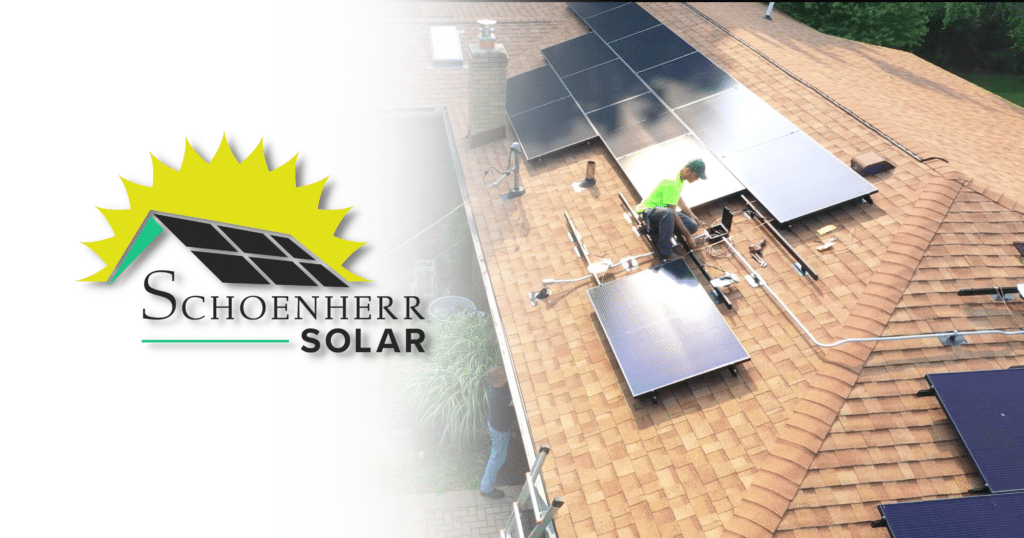
FAQ’s
1. How do I calculate the number of solar panels I need?
Calculate your home’s energy usage by examining your electricity bill to find your monthly kWh usage. Divide this by the average number of sunlight hours in your area to determine your daily kWh requirement. Then, consider the wattage of the solar panels you’re interested in; divide your daily kWh requirement by the panel’s kWh production to estimate the number of panels needed.
2. Does the location of my home affect the number of solar panels required?
Yes, your home’s location significantly impacts the amount of sunlight received and, consequently, the number of solar panels needed. Homes in sunnier regions may require fewer panels than those in less sunny areas due to differences in solar irradiance levels.
3. How does panel efficiency affect the number of solar panels I need?
Higher-efficiency panels produce more electricity from the same amount of sunlight than lower-efficiency panels. Therefore, you may need fewer high-efficiency panels to meet your energy needs compared to using panels with lower efficiency.
4. Can the installation space available influence the number of panels I can have?
Absolutely. The physical space available for solar panels on your roof or property will directly influence the maximum number of panels you can install. This may require opting for higher efficiency panels if space is limited to meet your energy requirements.
5. What should I do if my energy needs increase in the future?
If you anticipate an increase in your energy needs, consider installing a solar system that allows for expansion. You can also invest in higher efficiency panels to leave room for additional panels later or plan your system layout to accommodate future energy needs.

